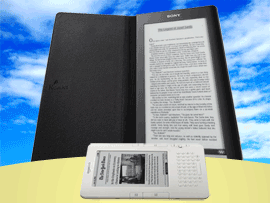 We are now less than a day away from the start of the long-awaited rollout of MMS on the iPhone. AT&T is planning to roll out the functionality in bunches starting at 10am ET, with a text message being sent to iPhone customers when the account is enabled for MMS, according to an anonymous source quoted by Broadband Reports.
We are now less than a day away from the start of the long-awaited rollout of MMS on the iPhone. AT&T is planning to roll out the functionality in bunches starting at 10am ET, with a text message being sent to iPhone customers when the account is enabled for MMS, according to an anonymous source quoted by Broadband Reports.
The question now is, given AT&T’s history, will this rollout go off without a hitch? It’s questionable. During tests, the carrier’s MMS servers reportedly failed for those invited to participate. Additionally, in the test groups, “record traffic” was reportedly seen during peak hours. If the situation is as reported, it seems to suggest that Friday could be another one of those days for the carrier’s millions of iPhone users.
If traffic is 40 percent higher than normal as some are predicting on Friday,the grief that iPhone users may experience could bleed to non-iPhone users, further damaging the company’s already weak standing for service reliability with a good chunk of its customers.
Certainly, it’s going to be interesting to watch how AT&T’s network does in the first days of the rollout. Since users will have to connect to iTunes to sync the new “carrier file” which enables the functionality within the iPhone’s software, it’s fairly likely we won’t see any potential problems crop up until later in the day or on Saturday.
Sorry AT&T, but I’m not holding my breath here that you guys can do this. Too many times since I’ve switched to you folks in October for the iPhone 3G you’ve let me down. I never thought I would actually want to go back to T-Mobile and EDGE data (yep, that’s all they have here), but at least they weren’t dropping calls.

 The first announcement off of the pipeline is a new version of iTunes, which is available immediately. iTunes 9 contains a few significant enhancements, so lets run through them.
The first announcement off of the pipeline is a new version of iTunes, which is available immediately. iTunes 9 contains a few significant enhancements, so lets run through them. While the Amazon Kindle and to some extent the Sony Reader have ignited the e-book industry, analysts say that the market will not be able to grow much further without a serious price drop.
While the Amazon Kindle and to some extent the Sony Reader have ignited the e-book industry, analysts say that the market will not be able to grow much further without a serious price drop.  Microsoft is going full-bore when it comes to the Zune HD,
Microsoft is going full-bore when it comes to the Zune HD,  The Web is not the answer to increased civic participation, according to the results of a study released Tuesday by the
The Web is not the answer to increased civic participation, according to the results of a study released Tuesday by the  With its “
With its “